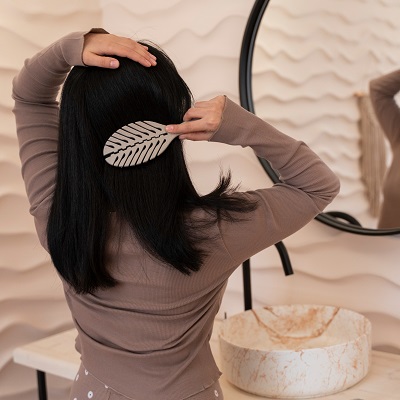 Are you worried about hair loss and willing to know if the solution can last? Loss of hair can distort one’s self-esteem, leaving the individual in a labyrinth regarding the future of their locks. The word temporary solution may leave one not so optimistic about things.
Are you worried about hair loss and willing to know if the solution can last? Loss of hair can distort one’s self-esteem, leaving the individual in a labyrinth regarding the future of their locks. The word temporary solution may leave one not so optimistic about things.
How long does transplanted hair stay? The excellent news is that hair taken from permanent zones and transplanted will last for your lifetime. So, the treatment will be available to solve hair loss issues in a reliable and durable way. If given appropriate care and accompanied by the experts, you will gain fantastic, natural, and persistent results. Transplanted hair grows exactly like your natural hair, and you feel ready to take life again. Let us lead you to solution and redemption that brings back not only your hair but your peace of mind, too.
Explanation About Hair Transplant:
A hair transplant is one shape of surgical treatment. In this method, hair follicles are transferred from one region of the frame to another. This approach is specially used for situations like hair loss or thinning. Normally, the donor’s hair is taken from the back and sides of the top. whilst this process is followed, the doctor transfers hair follicles from some areas to the balding zones. The entire process is aimed at giving one a natural-looking hairline. Many people want this treatment because it brings them back confidence and looks.
Hair Transplant Treatment Goals:
Hair transplant treatment is designed to establish a natural-looking, fuller hairline. Since it’s based on genetically resistant hair follicles, it provides a permanent effect of hair restoration. The transplanted hair will grow just like your own hair, blending very well with the other hair on your head. It helps cure balding and thinning hairs, uneven hairline, thereby enhancing aesthetic appeal and personal confidence.
The Best Effect of Hair Transplantation
Hair transplant results are gradual but rewarding. In the first few weeks, the transplanted hair may shed as part of the natural growth cycle. New growth begins around the third or fourth month. By the eighth month, noticeable improvements in density and coverage are visible.
In most cases, the final results take place after 12 to 18 months where a fuller and more natural hairline is noticed. The patients feel a renewed sense of confident and fulfillment with their appearance. Transplanted hair grows and behaves just like real hair so is considered a permanent and life-altering solution for hair loss.
How Long Does Transplanted Hair Stay?
Transplanted hair is generally perceived to be a permanent solution to hair loss. This transplanting procedure simply relocates normal hair follicles from donor locations to areas of the body where this thinning or baldness is occurring. The transplanted follicles themselves are genetically resistant to losing hair and retain all their properties after transplantation so may sprout there naturally. Although transplanted hair remains permanently in place, the natural hair surrounding the transplant site will likely continue to thin over time, so follow-up treatments are likely to be needed to achieve the best possible results.
What Are Two Types Of Hair Transplantation?
There are two types of hair transplant methods:
Follicular Unit Transplantation:
There may be a small strip of skin taken out from the donor area, ideally in the back of the top. that is dissected into person follicular units and grafted onto the recipient region.
Follicular Unit Extraction (FUE):
With this technique, man or woman hair follicles are immediately extracted from the donor area. The follicles are then implanted in the recipient area one by one. FUE is a minimally invasive method that incurs little or no scarring.
Both FUT and FUE are seeking to offer herbal outcomes, however each approach may additionally vary consistent with the patient’s needs and the pointers of the surgeon Dr Shahnaz Muzzam.
Benefits of Hair Transplantation in Islamabad:
- Natural Look: The surgery gives a completely natural hairline and density.
- Boosting One’s Confidence: It aids in re-gaining confidence since the visible signs of losing hair are diminished.
- Low Maintenance Hair Grafts: After healing, hair transplanted does not require some special care except for normal hair care.
- Minimal Down Time: Patients can return to work in days.
- Customized Solution: This is a customized solution to hair loss pattern and need.
- Improving Mental Well-being: Improves the quality of life and reduces feelings of shame.
How Much Does a Cost of Hair Transplant in Islamabad?
The cost of a Hair Transplant in Islamabad ranges from PKR 75,000 also as it is based on individual needs and the details of the treatment. To know how much you must pay, make an appointment with a surgeon and consult about the treatment you need.
Book Your Consultation With Us!
Take the first step for the Hair Transplant Treatment at Royal Hair Transplant Clinic. Schedule your consultation today to experience quality service and personalized care from our surgeon to achieve outstanding results.



 A hair transplant offers those losing their hair back their pride and a thicker head of hair, transforming their lives. Both follicular unit extraction (FUE) and follicular unit transplantation (FUT) aims to place healthy hair cells where hair is thinning or falling out. Many who have undergone hair transplants are interested in what they should do next. Hence,
A hair transplant offers those losing their hair back their pride and a thicker head of hair, transforming their lives. Both follicular unit extraction (FUE) and follicular unit transplantation (FUT) aims to place healthy hair cells where hair is thinning or falling out. Many who have undergone hair transplants are interested in what they should do next. Hence, 
 For women, thinning and hair loss can be distressing since hair is sometimes considered a significant component of who they are. Moreover, many reasons can lead to hair thinning or loss, including insufficient diet, stress, hormonal changes, and heredity. However,
For women, thinning and hair loss can be distressing since hair is sometimes considered a significant component of who they are. Moreover, many reasons can lead to hair thinning or loss, including insufficient diet, stress, hormonal changes, and heredity. However, 
 Though many girls discover hair loss scary, others do not forget it is a sign of beauty and self-belief. Although you lose between 50 and 100 hairs daily, losing a whole lot of hair ought to suggest an extra severe condition. Moreover, from hormonal issues to insufficient nutrients, women’s hair loss may be brought on through numerous factors. However, determining the reason for hair loss can help one choose a suitable response. Hence, this blog will discuss the
Though many girls discover hair loss scary, others do not forget it is a sign of beauty and self-belief. Although you lose between 50 and 100 hairs daily, losing a whole lot of hair ought to suggest an extra severe condition. Moreover, from hormonal issues to insufficient nutrients, women’s hair loss may be brought on through numerous factors. However, determining the reason for hair loss can help one choose a suitable response. Hence, this blog will discuss the 
 Are you worried that a hair transplant will not have the desired results? Another question going around the minds of many patients. And losing the anticipated results can also be a real downer. Just imagine spending your time and money to return inside and deal with disappointment when you start looking in the mirror. In a worst-case scenario, losing the outcome is shocking.
Are you worried that a hair transplant will not have the desired results? Another question going around the minds of many patients. And losing the anticipated results can also be a real downer. Just imagine spending your time and money to return inside and deal with disappointment when you start looking in the mirror. In a worst-case scenario, losing the outcome is shocking.
 Famous in recent years for treating a range of disorders, platelet-rich plasma (PRP) therapy is very effective. Moreover, it works equally for joint aches and hair loss. Furthermore, it helps to encourage healing and tissue regeneration. However,
Famous in recent years for treating a range of disorders, platelet-rich plasma (PRP) therapy is very effective. Moreover, it works equally for joint aches and hair loss. Furthermore, it helps to encourage healing and tissue regeneration. However, 
 Hair loss in Islamabad is among the most likely matters that people experience nowadays, it influences psychological conditions and physical health. But how lifestyle affect hair loss? This is important against hair loss as it will enable them to understand how specific behaviors are likely to affect their hair. This we shall discuss in this blog and also at some of the ways we can adopt to grow quality hair.
Hair loss in Islamabad is among the most likely matters that people experience nowadays, it influences psychological conditions and physical health. But how lifestyle affect hair loss? This is important against hair loss as it will enable them to understand how specific behaviors are likely to affect their hair. This we shall discuss in this blog and also at some of the ways we can adopt to grow quality hair.
 Many reasons may lead to hair loss. Hence, it includes heredity, stress, hormonal changes, and dietary choices. However, certain nutritional choices might cause them to grow incorrectly. However, food is not the sole factor causing alopecia. This article will discuss
Many reasons may lead to hair loss. Hence, it includes heredity, stress, hormonal changes, and dietary choices. However, certain nutritional choices might cause them to grow incorrectly. However, food is not the sole factor causing alopecia. This article will discuss 
 Do you have a receding hairline or thinning hair? It can be a very disconcerting feeling that inspires insecurity. Most people are scared that hair loss may indicate something more serious. The worst thing that might happen is how scary it becomes. Still, you must know that you never walk alone in this fight.
Do you have a receding hairline or thinning hair? It can be a very disconcerting feeling that inspires insecurity. Most people are scared that hair loss may indicate something more serious. The worst thing that might happen is how scary it becomes. Still, you must know that you never walk alone in this fight.
 Hair loss is a leading concern for adults and more specifically for men and women and causes concern for cure. Baldness is normal but sudden or excessive balding is very stressful and people may begin to ask questions like, “When Will I Stop Losing My Hair ?” Time required to stop hair shedding varies with the cause of hair loss, potential of the lifestyle, and the type of medication being taken.
Hair loss is a leading concern for adults and more specifically for men and women and causes concern for cure. Baldness is normal but sudden or excessive balding is very stressful and people may begin to ask questions like, “When Will I Stop Losing My Hair ?” Time required to stop hair shedding varies with the cause of hair loss, potential of the lifestyle, and the type of medication being taken.